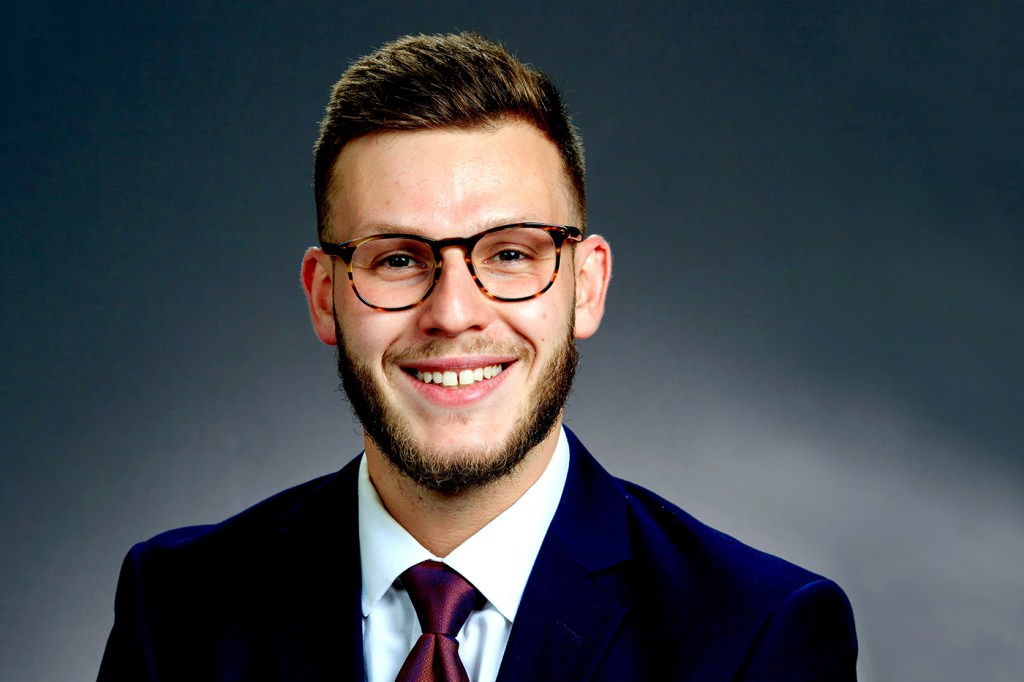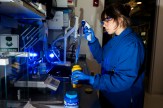Cultural and linguistic barriers keep new immigrants and refugees from effective healthcare. This Fulbright scholar wants to change that.

Ask Maxim Petrovsky to name some people he admires, and not a single sports star, celebrity, or politician appears on his immediate list.
He’d tell you he aspires to be like Oleg, his grandfather’s hospitable neighbor in Moscow, who greeted him with a bowl of hot borscht when Petrovsky visited his parents’ homeland five years ago. It was the first time Petrovsky, a graduating senior at Northeastern studying behavioral neuroscience, had been to Russia without his parents since he and his family came to the U.S. in 1999, and the first time he’d met Oleg, so the gesture was extra meaningful.
He’d tell you he wants to be more like his own family’s neighbor, John, who spent hours tutoring his mother in English, a skill that enabled her to communicate better with others in her adopted country.
And then there are the clinicians and case managers with whom he worked at the Boston Health Care for the Homeless Program, a respite clinic for people experiencing homelessness. Petrovsky remembers a “compassionate and culturally competent” staff that worked tirelessly not only to address their clients’ health needs, but helped connect them with resources to housing and social services.
“They not only listened to their patients’ needs, but heard them,” he says.
Inspired by each of these cases, Petrovsky wants to become a physician who works with the Russian diaspora and other immigrant communities in the U.S. facing cultural and linguistic barriers to receiving effective healthcare.
At Northeastern, Petrovsky has been a tutor all four years, and president of the university’s Teaching English Language and Literacy Skills organization, which provides English tutoring to dining hall workers on the Boston campus.
One of the ways in which he connects with his students is by drawing parallels in media and art between their own culture and the American culture. He had a student from China, Sue, who he says was struggling to grasp the concepts he was teaching her until he discovered her passion for soccer, or as she called it in Cantonese, zúqiú.
From there on, Petrovsky would have her read articles about her favorite team to help her improve her grammar and vocabulary, and listen to podcasts about the sport to encourage her to practice listening to fluid conversation. Before long, she became interested in the material again, and eager to learn English, which resulted in dramatic improvements in her ability to speak the language.
Petrovsky has been awarded a Fulbright scholarship, a prestigious award that provides grants for research projects or English teaching assistant programs. He will use the scholarship to return to Russia to teach English, and during his spare time, examine the healthcare system and public health outreach initiatives in Russia.
Petrovsky, a native speaker of Russian who learned English in the U.S., says he was excited and honored to have been chosen for the Fulbright. Past winners have included former United States Rep. Gabrielle Giffords, author Jonathan Franzen, and soprano Renee Fleming.
“Fulbright is such an incredible opportunity to engage in cultural exchange with a Russian university community, and I’m excited to discover the deeper commonalities and differences between my experiences here and those of students in Russia,” he says.
Petrovsky notes that while his early education was heavily centered on Russian language and values, he felt increasingly disconnected from his native language and culture as he grew older. But that changed when he came to Northeastern.
“When I was younger, I didn’t recognize the value that a second language, especially one as unique as Russian, provided,” he says. “It was only once I entered college, and was surrounded by so many people of different cultures, that I realized that language provided so many exciting opportunities.”
Now he wants to instill a love for language in others, starting in the birthplace of his parents.
“My parents are my inspiration for wanting to teach English,” Petrovsky says.
For media inquiries, please contact media@northeastern.edu.





